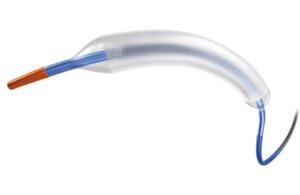
The DCB just this month won FDA approval for treating coronary in-stent restenosis (ISR) in patients with coronary artery disease. ISR occurs when plaque or scar tissue obstructs or narrows a stented vessel. Agent serves as an alternative to traditional therapies like balloon angioplasty, additional layers of stenting or radiation. The paclitaxel-coated balloon transfers a therapeutic dose of drug to the vessel wall, helping to prevent ISR reoccurrence.
The FDA approved the device, which received breakthrough designation in 2021, thanks to results from the FDA IDE trial. Data presented at TCT 2023 demonstrated statistical superiority for Agent compared to uncoated balloon angioplasty. Boston Scientific set a primary endpoint of target lesion failure at 12 months. Agent DCB topped balloon angioplasty with 17.9% target lesion failure compared to 28.7%.
Over the weekend, Dr. Robert Yeh presented primary endpoint data from the AGENT IDE trial. It included the total enrollment cohort of 600 patients. Yeh presented the data — published simultaneously in JAMA — at Cardiovascular Research Technologies (CRT) 2024.
Data proved very similar from the prespecified analysis of 480 subjects presented at TCT. Agent demonstrated statistical superiority to conventional (uncoated) balloon angioplasty in the primary endpoint (17.9% vs. 28.6%). This reflected a 41% relative risk reduction with the agent DCB.
Boston Scientific reported approximately 50% reductions in the rates of lesion revascularization (13% vs. 24.7%) and myocardial infarction (5.8% vs. 11.1%) following Agent treatment. At 12 months, Agent demonstrated statistically lower adverse event rates. Boston Scientific reported zero cases of definite or probable stent thrombosis in the Agent arm.

